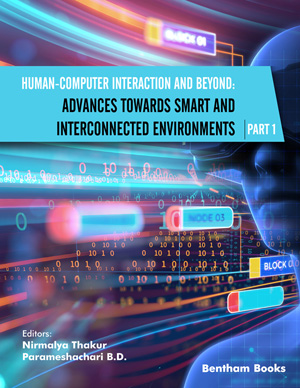Abstract
Background: The importance of this paper is to achieve maximum spectrum efficiency and proper channel allotment between Primary and Secondary User. The licensed and unlicensed users gets promoted as the channel allotment is properly carried out. To improve energy capability and spectral proficiency consider energy collecting cognitive radio systems to update both energy feasibility and spectral viability. Energy Harvesting Provides possibility of sharing energy in wireless networks which improves the performance of channel capacity.
Methods: In this paper an Token Passing algorithm is proposed that switches the channels between Primary User and Secondary User. The energy efficiency decision is taken according to when primary user is idle or not. When the primary user is idle the secondary user cannot harvest any energy and when the primary channel is occupied the secondary channel harvest energy from primary user so that the harvested energy will be used by the secondary user during channel allotment. This proposed algorithm provides energy harvesting and spectrum efficiency.
Results: The result shows that the most extraordinary achievable throughput R (eh) of the energy harvesting cognitive radio. The State Transition will move from busy to idle and idle to busy which is represented as S0 and S1. The other parameters are Sensing Energy es, Sampling frequency fs, Primary Signal which accepts a noise SNR γp. As Token Passing Algorithm provides tokens for primary and secondary user it takes lesser time and achieves better throughput than the FDMA and suboptimal algorithm.
Conclusion: This paper achieves the maximum spectrum efficiency and energy harvesting by properly allotting spectrum for both primary and secondary user. The primary user and secondary user and spectrum management perform the channel allotment efficiently through the idle and busy state and Token Passing Algorithm does energy harvesting. An efficient scheme is developed for allocating energy in energy harvesting cognitive radio systems.
Keywords: Cognitive radio, spectrum sensing, energy harvesting, primary user, secondary user, token passing algorithm.
Graphical Abstract
[http://dx.doi.org/10.1109/ACCESS.2016.2616353]
[http://dx.doi.org/10.1109/SURV.2009.090109]
[http://dx.doi.org/10.1109/TWC.2013.121713.130820]
[http://dx.doi.org/10.1109/TVT.2011.2179323]
[http://dx.doi.org/10.1109/TWC.2010.092810.100320]
[http://dx.doi.org/10.1109/TCCN.2015.2508028]
[http://dx.doi.org/10.1109/MWC.2014.6845054]
[http://dx.doi.org/10.1109/TWC.2013.072613.130323]
[http://dx.doi.org/10.1109/TWC.2014.2358215]
[http://dx.doi.org/10.1109/COMST.2015.2497324]
[http://dx.doi.org/10.1109/JCN.2012.6253064]
[http://dx.doi.org/10.1109/TWC.2013.012413.121009]
[http://dx.doi.org/10.1109/TWC.2013.103113.130018]
[http://dx.doi.org/10.1109/TWC.2014.032514.130637]
[http://dx.doi.org/10.1109/TWC.2013.121713.130820]
[http://dx.doi.org/10.1109/TWC.2014.040214.131201]
[http://dx.doi.org/10.1109/ICC.2013.6654965]



















